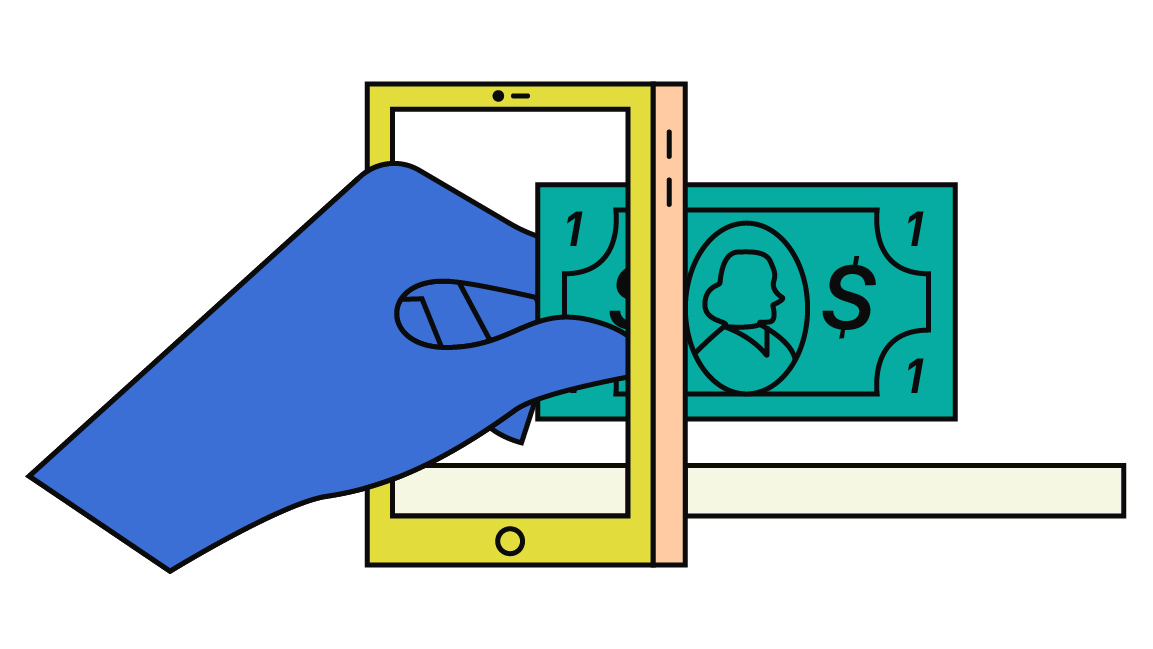
Stock Market 101
Investing remains a cornerstone of a strong financial foundation. It can feel confusing, but learning how to invest is achievable and often rewarding.
With its technical terms and potential to lose money, investing can feel complicated and overwhelming. What’s a stock? How do I buy one? What’s a trade? What does it mean when the stock market crashes? The amount of questions many people have about investing goes on, and on—and on. Still, the stock market is a great place to make extra income without working overtime, but it does come with risks. Let’s just take it one step at a time.
The stock market is a place where shares are bought, sold, and traded among the general public. A stock is a portion of ownership of a company. A share is a piece of a stock, though the terms are often used interchangeably.
As the value of the company increases, the value of the stock or share also increases. The basic idea of making money on the stock market is to buy a stock now and sell the stock later when its value increases for more than what you paid. Of course, that doesn’t always happen. Sometimes the value goes down and you end up selling it for less and lose money.
Another way to earn money through the stock market is through dividends. Dividends are payments a company makes to its investors, often when the company has significantly good sales or performance. Not all stocks pay dividends, so if you are interested in earning them, look for stocks that specifically say they pay out dividends.
When you sell a stock for more than you paid for it, that earning is referred to as a capital gain. A short-term capital gain comes from stocks held for less than a year, while long-term capital gain is from stocks held for longer. The government taxes gains depending on whether they are long or short, with short-term gains taxed as regular income. A capital loss happens when you sell an asset for less than you paid. Capital losses can help offset capital gains when at tax time, lowering an investor’s tax bill.

The value of a stock is determined by how much someone else is willing to pay for it. This means that values, and thus prices, are constantly in flux. The variables that directly impact the value are the “ask” and the “bid.” The bid is the highest price an investor will pay for a share. The ask is the lowest price they will sell a share for. The ask and bid are both impacted by the supply and demand of the stock. Say an investor wants to sell their share for an ask of $20. When you buy that share, there are no other shares available at $20 and the next lowest ask is $30. Your share is now worth $30, because the next investor must pay that to get the same share. Similarly, if you bid on a stock for $15, but all the current asks are $25, no one would accept your bid unless the value of the stock falls because no one is willing to sell it at that price.
One of the most common ways to buy shares is through a brokerage account. A brokerage account is used to trade stocks and other investments through a licensed broker. While it is possible to trade some stocks without a broker, most stocks require one. A brokerage account most likely has fees to set up and maintain your account, similar to a minimum in a savings account at a bank or credit union.
Investment apps are another way for people to start investing. These services act as digital brokerage accounts, usually require less money upfront, and are popular among new investors. Just remember, these apps gamify the stock market experience and encourage a lot of trading over a short period of time. The exhilarating feeling of playing a game can lead to riskier trades. Also, these apps ask for sensitive information before starting an account, so do your research and never give personal information to an app with questionable integrity.
Investing is one of the most effective ways to save enough money for a comfortable retirement. Retirement funds, like traditional and Roth 401(k)s and IRA plans, are investment accounts that make money through the stock market. These funds create a reliable and safe pathway to retirement. It’s wise to contribute as much as you can to a 401(k) or IRA—ideally the maximum amount— before delving into other types of investing.
Investing in the stock market can be a good way to make the most out of your extra cash, but it isn’t guaranteed you’ll make money. Investing always carries risk, and the best way to minimize risk is to put your money into stable investments over a long period of time. You won’t double your money in a day, but over time, even a small yearly return can add up to a lot of extra money.
Neither Banzai nor its sponsoring partners make any warranties or representations as to the accuracy, applicability, completeness, or suitability for any particular purpose of the information contained herein. Banzai and its sponsoring partners expressly disclaim any liability arising from the use or misuse of these materials and, by visiting this site, you agree to release Banzai and its sponsoring partners from any such liability. Do not rely upon the information provided in this content when making decisions regarding financial or legal matters without first consulting with a qualified, licensed professional.